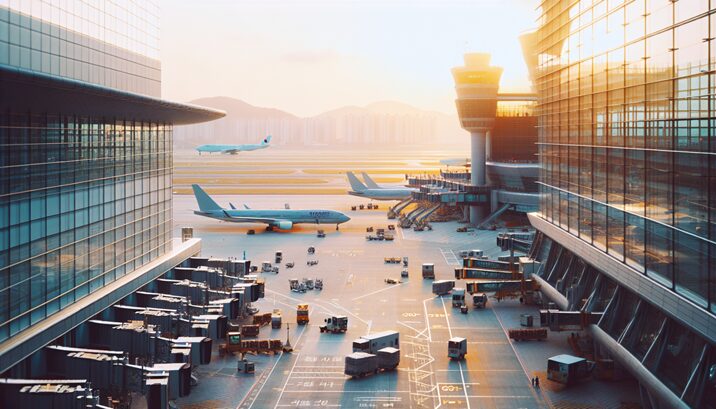Incheon Airport Soars to World’s 3rd Busiest International Hub: What’s Behind Korea’s Aviation Success?
The aviation world has a new top contender as South Korea’s Incheon International Airport claims its position among the global elite. For the first time since its opening, Incheon has secured the third spot in international passenger traffic according to Airports Council International (ACI) rankings. This remarkable achievement comes after handling over 70.6 million passengers in 2023, marking a significant milestone in the airport’s history. What factors have propelled this Korean aviation powerhouse into the top three, and what does this mean for global air travel patterns?
Record-Breaking Passenger Numbers
Incheon Airport has achieved unprecedented passenger volumes, shattering its previous records and cementing its position among global aviation leaders.
- Incheon Airport served 70,669,246 passengers in 2023, representing a substantial 26.7% increase from 2022
- This performance earned Incheon the 3rd position globally, surpassing its previous best ranking of 5th place achieved in 2018 and 2019
- Projections for 2024 are even more optimistic, with passenger numbers expected to reach between 73.03 million and 76.64 million
Global Airport Rankings Reshuffle
The new hierarchy of international airports shows interesting shifts in global aviation power centers.
- Dubai International Airport maintained its dominance with 92,331,506 passengers, securing the top position
- London’s Heathrow Airport claimed second place with 79,194,330 passengers
- Incheon Airport’s 70,669,246 passengers put it ahead of Singapore’s Changi Airport (67,063,000) and Amsterdam’s Schiphol Airport (66,822,849)
- This reshuffling reflects changing global travel patterns and recovery trajectories post-pandemic

Strategic Growth Factors
Several key factors have contributed to Incheon’s meteoric rise in international passenger rankings.
- Peak summer travel seasons and holiday periods drove significant passenger increases throughout 2023
- Short-haul travel preferences have shifted, partially influenced by the weak Japanese yen and other currency dynamics
- Incheon Airport has strategically expanded its network infrastructure, enhancing connectivity across Asia and beyond
- The airport’s recovery strategy has effectively capitalized on changing post-pandemic travel behaviors
Cargo Excellence Complements Passenger Success
Beyond passenger operations, Incheon’s cargo performance further solidifies its status as a comprehensive aviation powerhouse.
- The airport handled 2,906,067 tons of international cargo in 2024, representing a 7.4% increase
- This cargo volume also earned Incheon a 3rd place ranking globally in freight operations
- The dual strength in both passenger and cargo operations demonstrates Incheon’s balanced approach to aviation excellence

Incheon Airport’s ascension to the world’s third busiest international hub represents not just a milestone for South Korea but signals shifting dynamics in global aviation. As President Lee Hak-jae of Incheon International Airport Corporation emphasized, this achievement will fuel further innovation in digital transformation and AI development for aviation operations. The question now becomes: can Incheon maintain this momentum to challenge the long-established dominance of Dubai and Heathrow?
Keywords
Incheon Airport, international passenger rankings, aviation industry, South Korea, airport traffic
Hashtags
#IncheonAirport #GlobalAviation #Top3Airport #KoreaSuccess #AirTravel
한국어 요약
- 인천국제공항이 2023년 7066만9246명의 여객을 유치하며 국제선 여객 순위 세계 3위를 기록
- 이는 전년 대비 26.7% 증가한 수치로, 인천공항 개항 이후 최초의 ACI 기준 세계 3위 달성 (이전 최고 순위는 2018년과 2019년의 5위)
- 두바이공항(9233만명)과 히드로공항(7919만명)에 이은 순위로, 싱가포르 창이공항과 암스테르담 스키폴공항을 앞섬
- 화물 부문에서도 290만6067톤을 처리하며 세계 3위를 기록, 디지털 혁신과 항공 AI 개발을 통한 경쟁력 강화 계획 발표






